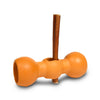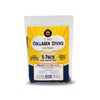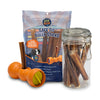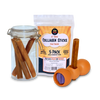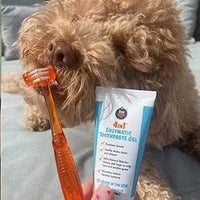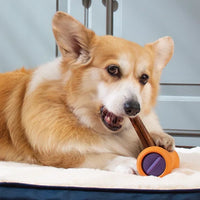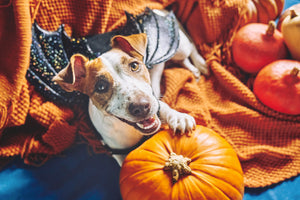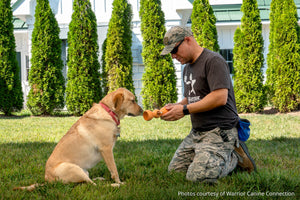If you’ve ever watched your pup tilt their head when you say “sit” or proudly show off a paw shake, you know how rewarding teaching tricks can be. Tricks aren’t just about entertaining friends—they provide mental stimulation, physical exercise and strengthen the bond between you and your dog. Whether you’ve got a wiggly puppy, an eager adult or a senior who naps more than they zoom, there are tricks that every dog can learn.
So, what tricks should you teach, and is it really true you can’t teach an old dog new tricks? Let’s find out.
Why Teach Your Dog Tricks?
- Mental exercise: Tricks keep your dog’s brain active, which is just as important as physical activity.
- Bonding time: Training sessions are quality one-on-one time with your pup.
- Confidence builder: Success makes dogs more eager to try new things.
- Practicality: Some “tricks” double as useful behaviors (like “stay,” “come,” or “drop it”).
What Tricks Can I Teach My Dog?
Beginner / Foundational Tricks
These are the building blocks for more advanced skills:
- Sit: Classic and a must-have.
- Stay: Teaches patience.
- Come: Essential for safety.
- Down: Useful for calm behavior.
- Leave it: Helps curb unwanted snacking or chewing.

Fun & Easy Tricks
Want to keep training lighthearted? Try these:
- Shake hands / high five: Always a crowd favorite.
- Roll over: Adds a playful element.
- Spin in a circle: Fun and energetic.
- Speak / quiet: Puts you in charge of barking.
- Wave goodbye: Simple variation of paw shake.
Advanced Tricks
Once your dog has mastered the basics, try:
- Fetch specific toys by name: Great mental workout.
- Bow: An adorable trick that looks like a doggie “thank you.”
- Weave between legs: Fun movement game.
- Balance a treat on their nose: Impressive self-control.
- Turn off a light or close a door: Useful and impressive.
Can You Teach an Old Dog New Tricks?
Dogs of all ages can learn! From simple paw shakes to advanced skills, every dog is capable of learning something new. Contrary to the old saying, senior dogs may even have an advantage because they’re often calmer and more focused than puppies. The main difference is adjusting tricks to match their energy level and health.
Considerations for Older Dogs
- Mobility: Avoid tricks that require jumping or fast twists.
- Senses: Adjust cues if vision or hearing is declining (use hand signals, touch or brighter gestures).
- Pace: Go slower and keep sessions shorter.
With patience, you’ll find senior dogs love learning new things. Training can help keep their minds sharp and hearts happy.
Tricks That Work Well for Senior Dogs
- Touch/target training: Teaching your dog to touch their nose or paw to your hand or an object.
- Gentle fetch: Using soft toys and short distances.
- Find it: Hiding a treat or toy nearby to engage their sense of smell.
- Speak on cue: Minimal movement, maximum fun.
- Memory games: Asking them to choose between known toys by name.

How to Teach Tricks Successfully
- Use positive reinforcement: Reward with treats, praise or play.
- Break it down: Teach in small steps rather than expecting perfection right away.
- Stay consistent: Use the same word or hand signal each time.
- Short sessions: 5–10 minutes is ideal and end on a success.
- Patience pays off: Every dog learns at their own pace.
Common Mistakes to Avoid
- Asking too much too fast (causing frustration).
- Training when your dog is tired or distracted.
- Using punishment instead of rewards (it damages trust).
- Forgetting to phase out lures (like waving food around forever).
Safety First
Before starting new tricks, especially with older dogs, check with your vet if your pup has joint issues, arthritis or other health conditions. Always train on safe surfaces and stop if your dog shows signs of discomfort.
Keeping It Fun
At the end of the day, trick training should feel like a game. Celebrate small wins, laugh at the silly attempts and enjoy the process. Dogs thrive when learning is fun, and the time you spend together will be just as valuable as the tricks themselves.



